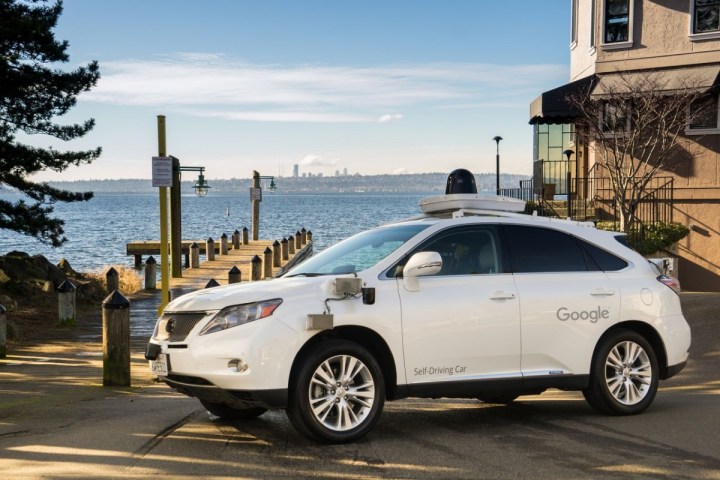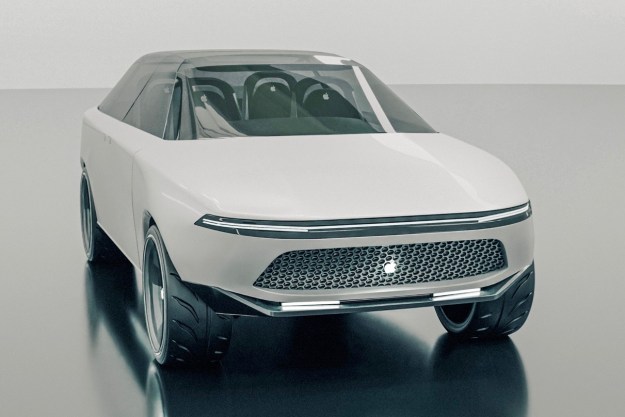
According to a DMV report, a self-driving Lexus 450h owned by Google collided with a city bus in Mountain View, California, on February 14. Operating in autonomous mode, the hybrid SUV encountered stopped traffic that was waiting to proceed straight at a light. The vehicle wished to turn right at the intersection, so it moved to the right-hand side of the lane to go around. However, it encountered sandbags blocking its path, so the Lexus signaled that it was returning to the center.
The light turned green, and traffic began to move by the Google autonomous vehicle (Google AV). After a few had passed, the Lexus began to inch back into the center of the lane, which prompted the vehicle’s safety driver (all of Google’s autonomous cars have them), to check the conditions. A transit bus was approaching from the rear, but according to the report, the test driver believed “the bus would stop or slow to allow the Google AV to continue.” It did not.
The Lexus made contact with the side of the bus a few seconds later, but only caused minor damage given its slow speed 2 mph. The bus was traveling at 15 mph, and no injuries have been announced.
Google has released a statement responding to the incident. “In this case, we clearly bear some responsibility, because if our car hadn’t moved there wouldn’t have been a collision,” the company explained (via Reuters). “That said, our test driver believed the bus was going to slow or stop to allow us to merge into the traffic, and that there would be sufficient space to do that.”
“From now on, our cars will more deeply understand that buses (and other large vehicles) are less likely to yield to us than other types of vehicles, and we hope to handle situations like this more gracefully in the future,” the statement continues.
This is the first time that Google has admitted fault, albeit partial, in an autonomous vehicle crash. The multinational tech firm recently announced that it was expanding its Self-Driving Car Project to Washington state.
Editors' Recommendations
- Tesla Autopilot vs. full self-driving: What’s the difference?
- Dubai Police to deploy driverless patrol cars with AI smarts
- An autonomous car in San Francisco got stuck in wet concrete
- Autonomous cars confused by San Francisco’s fog
- Is Tesla Full Self-Driving worth it?


